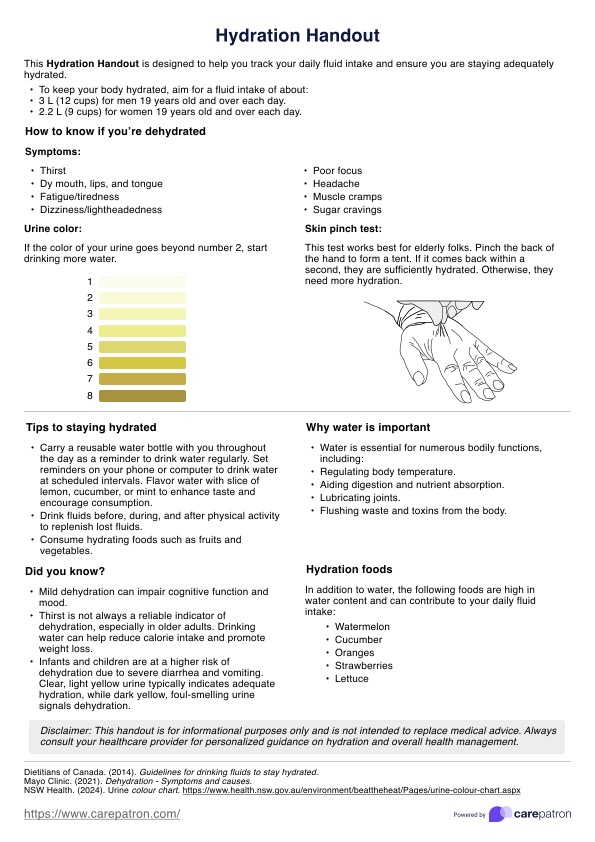You can promote good hydration by making a habit of drinking water regularly throughout the day.

Hydration Handout
Help your clients stay hydrated with our Hydration Handout. Use our handout to teach them water intake tips to stay hydrated and maintain good health.
Use Template
Hydration Handout Template
Commonly asked questions
Yes, drinking more water when exercising is essential to replenish fluids lost through sweat and maintain hydration levels.
To stay hydrated in hot weather, drink water frequently and consider consuming hydrating foods like fruits and vegetables.
EHR and practice management software
Get started for free
*No credit card required
Free
$0/usd
Unlimited clients
Telehealth
1GB of storage
Client portal text
Automated billing and online payments











